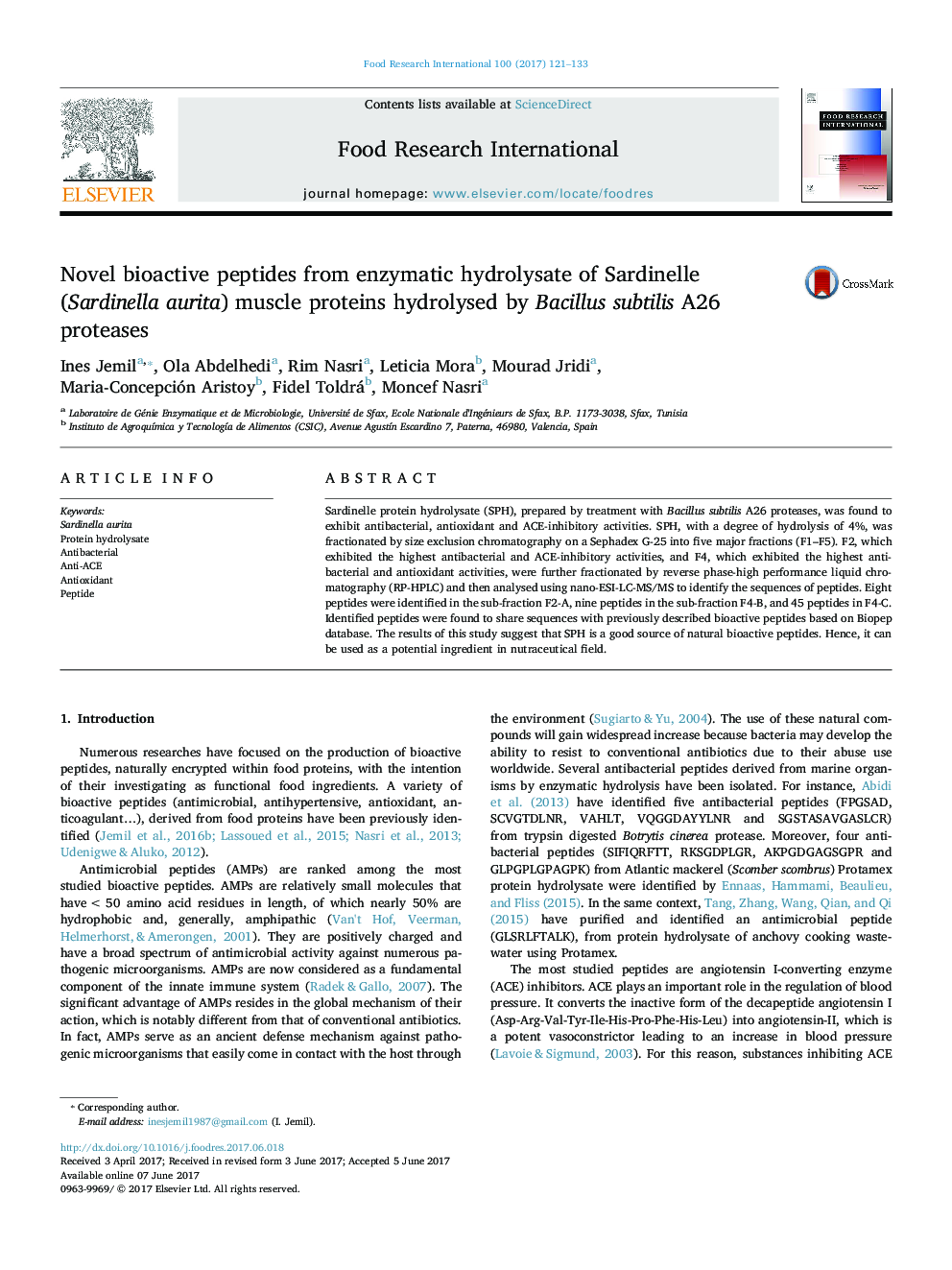| Article ID | Journal | Published Year | Pages | File Type |
|---|---|---|---|---|
| 5767959 | Food Research International | 2017 | 13 Pages |
â¢Sardinelle protein hydrolysate (SPH) was prepared using Bacillus subtilis A26 proteases.â¢SPH was fractionated by RP-HPLC and nano ESI-LC-MS/MS.â¢A total of 62 peptides were identified from the most active fractions.â¢Identified peptides share sequences with previously identified bioactive peptides.â¢SPH is a good source of natural antibacterial, antioxidant and antihypertensive peptides.
Sardinelle protein hydrolysate (SPH), prepared by treatment with Bacillus subtilis A26 proteases, was found to exhibit antibacterial, antioxidant and ACE-inhibitory activities. SPH, with a degree of hydrolysis of 4%, was fractionated by size exclusion chromatography on a Sephadex G-25 into five major fractions (F1-F5). F2, which exhibited the highest antibacterial and ACE-inhibitory activities, and F4, which exhibited the highest antibacterial and antioxidant activities, were further fractionated by reverse phase-high performance liquid chromatography (RP-HPLC) and then analysed using nano-ESI-LC-MS/MS to identify the sequences of peptides. Eight peptides were identified in the sub-fraction F2-A, nine peptides in the sub-fraction F4-B, and 45 peptides in F4-C. Identified peptides were found to share sequences with previously described bioactive peptides based on Biopep database. The results of this study suggest that SPH is a good source of natural bioactive peptides. Hence, it can be used as a potential ingredient in nutraceutical field.
Graphical abstractDownload high-res image (190KB)Download full-size image
